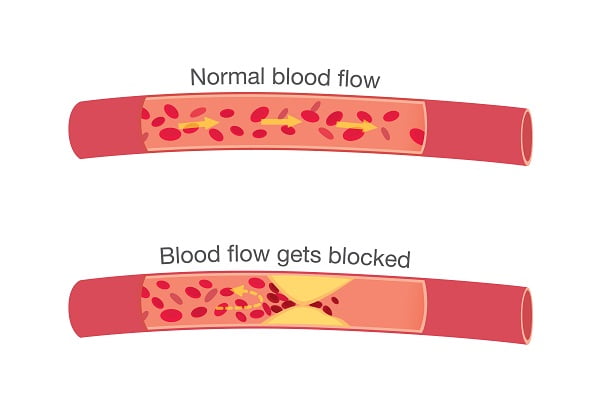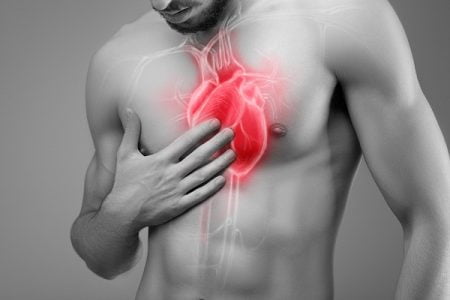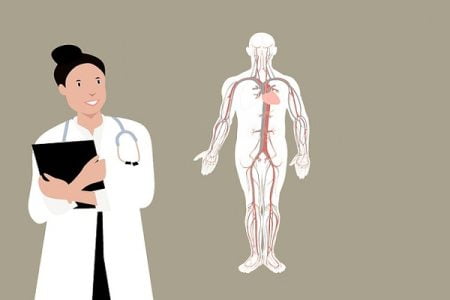What Is Angina (Chest Pain)?
- Updated on: Jul 9, 2024
- 3 min Read
- Published on Apr 19, 2021

Angina is a chest pain or discomfort caused when your heart muscle doesn’t get enough blood. You may experience like someone pressure or squeezing your chest. You may also feel like indigestion.
The discomfort can occur in your arms, shoulders, jaw, neck, or back also.
Angina is relatively common but is generally difficult to distinguish from other types of chest pain, such as the pain or discomfort due to indigestion. If you experience unexplained chest pain, you should seek medical attention without any delay.
What cause angina?

The chest pain happens because there isn’t sufficient supply of blood to some sections of your heart. It’s a symptom of heart problems, and it occurs when something (such as plaque or deposits) blocks your arteries causing a decreased blood flow in the arteries that supply oxygen-rich blood to the heart.
With time, a fatty material called plaque builds up in your coronary arteries, making them become narrow and rigid this leading to heart disease showing up as chest pain.
The most common cause of reduced flow of the blood to your heart muscle is coronary artery disease (CAD). Your coronary arteries become narrowed and rigid due to deposits such as plaques. This process is called atherosclerosis.
Triggers of angina
Common triggers of angina are:
- Severe emotional stress
- Physical exertion
- Smoking
- Exposure to extreme temperatures
- Certain foods
Types of Angina
The various types of angina are:
Stable Angina / Angina Pectoris
Stable angina is the chest pain that can occur during a physical activity or intense emotions.
Unstable Angina
Unstable angina does not follow a pattern. It is a chest pain that occurs all of a sudden and becomes worse over time. The cause is usually not clear. It may occur when you are ate rest or when you are in asleep.
It is less common and is considered more serious because rest and medication does not generally relieve it.
Variant (Prinzmetal) Angina
Prinzmetal angina (also called coronary artery spasm) is a temporary discomfort or pain that is caused by a spasm (constriction) in the coronary arteries. This can block the blood supply to your heart muscle. The pain can be minor to severe. But, sometimes it may completely block the blood supply to your heart.
Microvascular Angina
Microvascular (smallest vessels) angina is rare and can occur at rest without any underlying coronary artery disease. It can be relieved by medicine.
The pain or discomfort may be more severe and last for a longer duration than pain in other types of angina.
Symptoms of angina
Angina is usually felt as a discomfort or pain in the chest. It can also be felt in jaw, neck, shoulders, throat, teeth, back, or arms. Women are more likely to feel pain or discomfort in the neck, throat, jaw, abdomen, or back.
Common symptoms of angina are:
- chest pain of discomfort
- heaviness
- as if someone is applying pressure in the chest
- burning or aching across the chest
- squeezing
You may also experience:
- weakness
- cramping
- shortness of breath
- nausea or vomiting
- sweating
- indigestion
- heartburn
- dizziness
Some people describe angina as a feeling like someone squeezing their chest or a feeling like a heavy weight has been placed on their chest. For others, it may feel like indigestion or heartburn.
The intensity and duration of angina can vary based on its type.
Angina may manifest in the form of an attack, pain, or discomfort in the chest that may last from 1-15 minutes. It usually goes away quickly. But, it can still be a serious symptom of the underlying life-threatening heart disease. It’s important to call your doctor immediately and find out what’s going on in your heart.
People can have different symptoms at different times. Some people may have them early in the morning, or during rest or when sleeping. Others may get angina in cold weather, or after a heavy meal or after exertion.
What you can do if you have chest pain (angina)
There’s a lot you can do to prevent angina again. Medicine and lifestyle changes can help control it. Sometimes, you may require a surgery and placing a stent if the condition is severe due to a heart problem. Read more about treatment of angina.













1 Comment
I’m still learning from you, as I’m improving myself. I definitely love reading everything that is posted on your blog.Keep the tips coming. I loved it!